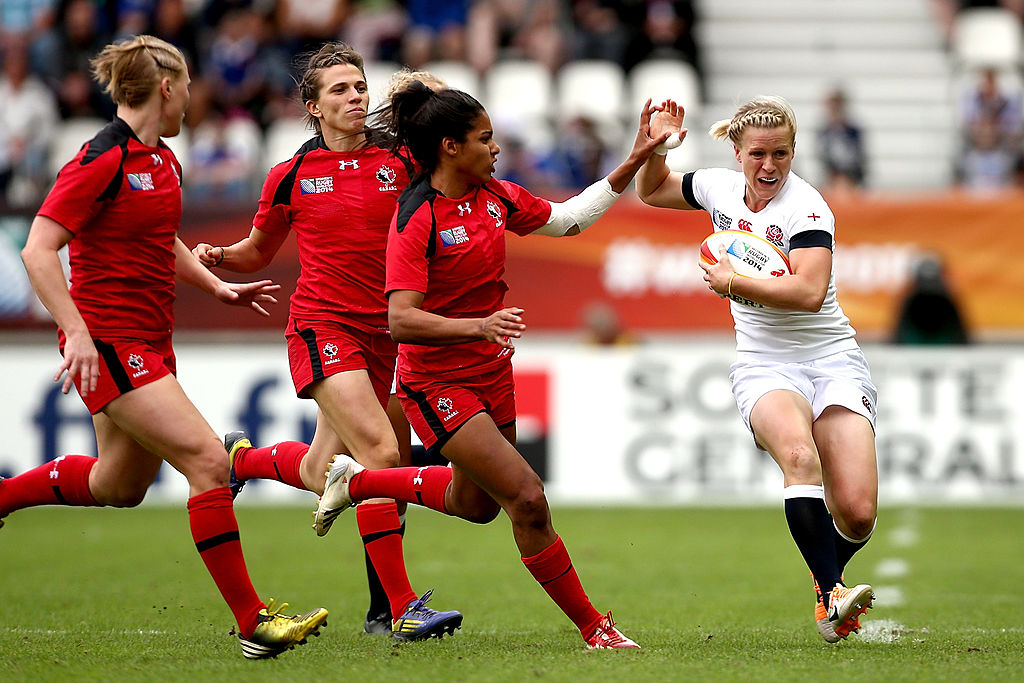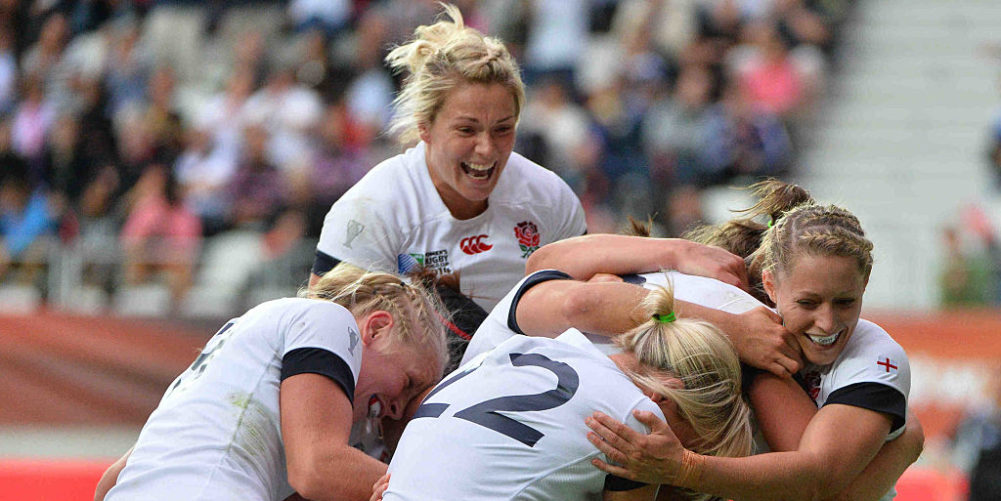Brendan Gallagher concludes his series charting the history of the women's game
FOLLOWING four consecutive New Zealand Women's World Cup titles there was an urgent need for somebody else to win the ultimate prize when the top teams gathered in France for the tournament in 2014. Despite the best efforts of opponents it was all getting a bit Groundhog Day.
England, who went so close in 2010, were the most likely side and indeed, ultimately, won the competition more of which anon, while hosts France had ambitions of their own and Canada were a coming force again.
However, it was Ireland, enjoying a purple patch during this era which saw them win the 2013 and 2015 Six Nations, who applied the killer blow with a sensational 17-14 win in the pool stages which effectively put New Zealand out of the knock-out stages.
Ireland, who came into the match off a fine win over the USA in their first pool game, were a strong, competent side with one unquestioned superstar in Niamh Briggs, possibly the world's best full-back at the time, but the result would still have to go down as a huge shock.
It was no fluke, though.The best team on the day unquestionably won with Heather O'Brien and Alison Miller scoring their tries and Briggs adding two conversions and what proved to be the match-winning penalty in the 70th minute.
The Irish made sure they won the pool with a 40-5 victory over Kazakhstan and New Zealand were unexpectedly reduced to also-rans because they were unable even to claim the best runners-up spot to book a place in the semi-finals.
That was denied them because England and Canada had fought out a torrid 13-13 draw in their final pool game which saw both sides go into the semis, England as pool winners, Canada as best runners-up.
One way or another the world of Women's rugby had been turned on its axis.
Some semblance of normality returned in the first of those semi-finals when Ireland, drained by their efforts in the pool, couldn't go to the well again and lost 40-7 to an England side who sniffed blood after the demise of the New Zealand challenge and really started to fire.
It was also becoming quite apparent that Canada had really got their act together and that 13-13 draw with England was more down to their excellence than England's Red Roses being a little off their game.
The Canadians proved that categorically in the second semifinal – in front of a full house 17,000 crowd at Stade Jean Bouin in Paris – where they claimed a memorable 18-16 win over hosts France in a cracking game which was considered a new high-water mark for the Women's game in terms of spectacle and crowd involvement.
Some of the rugby was pretty spectacular as well with Canada's wing Megali Harvey – who had been a successful member of their Sevens teams – scoring a blistering 80 yard try, which included a sensational step inside to dismiss one hapless defender, as Canada countered from a disintegrating scrum on their own line to clinch the game.
L'Equipe immediately declared Harvey the sexiest woman in rugby and while some baulked at the stereotyping others had to pause a minute to wipe their eyes in disbelief.
Front page of the L'Equipe and three pages of reports inside.
This World Cup was having a massive impact, far greater than any that had gone before.
Women's rugby was on a roll.
England had their own very special players as well, though.
For over a decade Noli Waterman, the daughter of stalwart Bath full-back Jim Waterman, had been among the best all-round backs in the women's game and she reached peak form during this tournament while there were others from that generation.

Flanker Maggie Alphonsi and prop Rocky Clarke had unfinished business with the World Cup, having suffered defeat too many at times at the hands of the Kiwis, while the special skills of Emily Scarrett were also coming to the fore at centre.
Scarrett diverted to rugby after turning down a basketball scholarship in the USA and as well as strength, speed and good hands was one of the most reliable goal-kickers in the game.
The final, played in front of another sell out 17,000 crowd, started off in free-flowing style, but with the stakes so high became increasingly tense.
England scored a try through Waterman and Scarratt added a hat-trick of penalties while Canada hung in there with three penalties from the versatile Harvey and at just 14-9 up with seven minutes left it was still all to play against a Canada side with their known penchant for counter-attacking from deep.
It was then that Scarratt broke through from 25 yards out for a fine individual try to clinch England's first title in 20 years.
Tracking left to right she stepped and handed off one Canadian player and then accelerated through a gap to dismiss another two defenders before touching down. It was a virtuoso player moment and a fitting way to clinch a World Cup Final.
England might not have quite reached the heights of their semi-final win over Ireland four days earlier – their best performance of the modern era – but they were the best team at the World Cup and fitting winners.
“We've worked so hard for this,” said England skipper Katy McLean afterwards. “So many legends have gone before us who haven't won and that's about them as well today. It's about the whole rugby family. Canada were fantastic and it's absolutely amazing that we did it.”
England's efforts were recognised when they won the BBC SPOTY Team of the year award and perhaps the last word should go to Alphonsi who retired from the international game soon after.
“It was a really good campaign and looking back our frequent camps at Surrey Sports Park were very important.
“It gave us the time to get really fit and analyse our game in a proper professional camp environment away from the pressures of work.
“Before the 2006 World Cup we had met up for several weekends prior to the tournament which was something, but it wasn't in all honesty a lot of time together.
In 2010 we upped that a bit and managed a few camps which was progress but this time we have been able to meet in regular camps ever since the end of the Six Nations in March. We have been living the life of professional rugby players.”
Elite women's rugby was heading that way – semi or even full time professionalism – although, alas, just too late for one of England's most accomplished ever players.
New Zealand hit back to claim the next World Cup in 2017, and they will host this year's event in the autumn.



























